The far-right Party for Freedom, led by Geert Wilders, wins the parliamentary elections in the Netherlands. What does this mean for Ukraine?
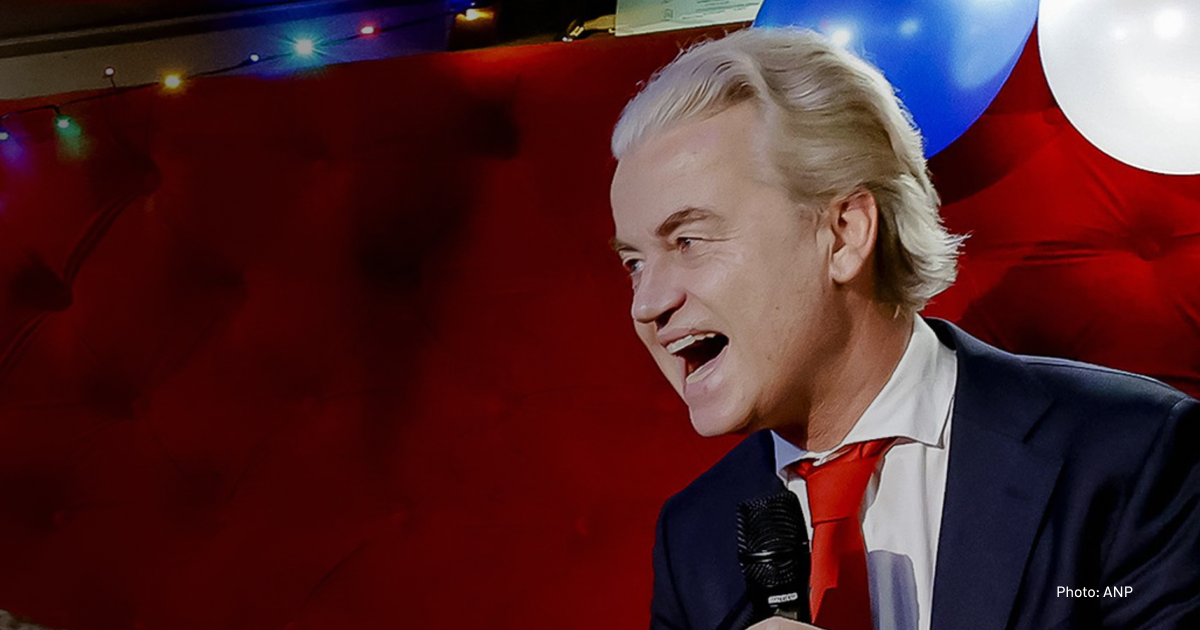
Far-right populists led by Geert Wilders win parliamentary elections in the Netherlands
The Dutch public broadcaster NOS reports.
According to preliminary results, the Party for Freedom (PVV) won 37 out of 150 seats in parliament. This is 20 more than the party had before.
In second place was the alliance of the GroenLinks (Left-Green) and the Labour Party, led by former European Commission Vice-President Frans Timmermans. They will have 25 seats in the parliament.
In third place is the People's Party for Freedom and Democracy (VVD) of current Prime Minister Mark Rutte, led by Dilan Yeşilgöz-Zegerius. The VVD is expected to win 24 seats.
The newly formed New Social Contract (NSC) will get another 20 seats. The Farmer-Citizen Movement, the Democrats 66 (D66), the Christian Democratic Appeal, and the Christian Union will also enter parliament.
It will be recalled that the Prime Minister of the Netherlands, Mark Rutte, announced his resignation on July 8, 2023. The entire cabinet will resign with him.
As a result, early elections have been announced. Rutte's team will govern until the new government takes office.
How did the parties that entered parliament react to the PVV's victory?
Now, the Netherlands will have to form a coalition. According to Dutch public broadcaster, the PVV will probably try to unite with VVD and NSC. Such a coalition would have 81 out of 150 seats in the government.
VVD leader Dilan Yeşilgöz said her party would not work with Wilders if he became prime minister.
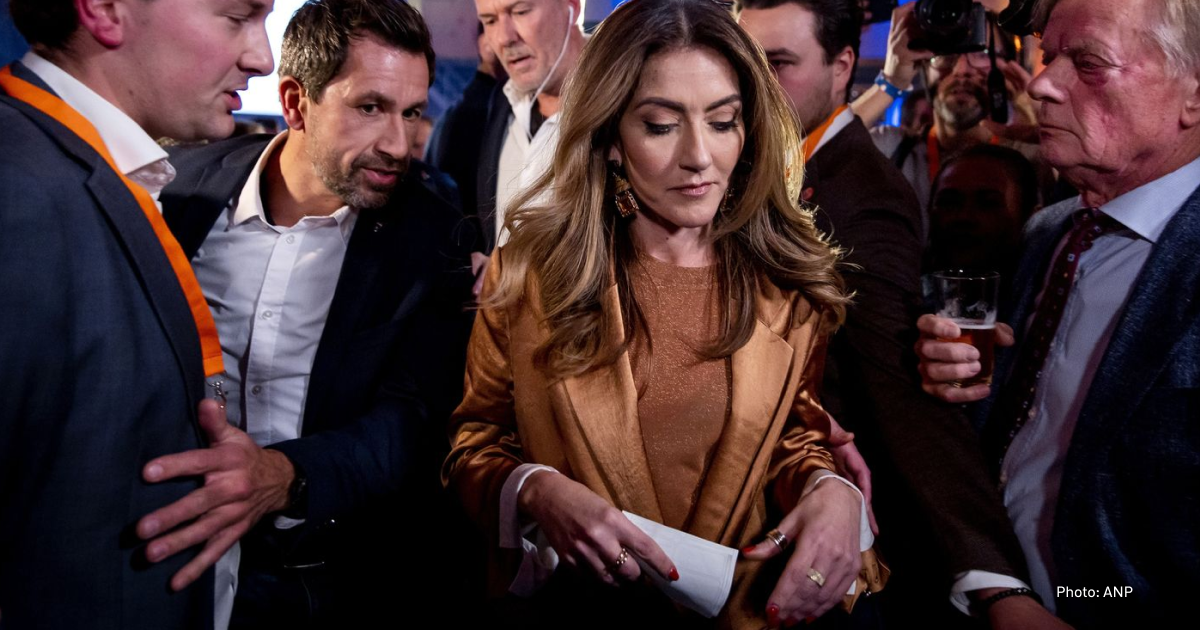
The leadership in forming [a coalition] is not ours. It's up to Wilders, and it's up to him to prove that he can find such a majority,
Yeşilgöz said.
In his speech, Pieter Omtzigt, leader of the newcomer NSC, did not make any clear statements about a possible coalition with the PVV. But during the election campaign, Omtzigt called Geert Wilders' views unconstitutional.
D66 said it did not want to be in the same cabinet as the PVV. They will also wait to see how the new cabinet is formed.
Timmermans, the leader of the Left-Greens and Labour coalition, said he saw his role as one of opposition. "The campaign to unite the left has already started. I suspect we will be in opposition," the former European Commission vice-president said.
Reaction to the election results at the national level
The FNV, the largest trade union in the Netherlands, said it would fight for the rights of people "whose position cannot be taken for granted after the election results".
Earlier, Geert Wilders had described the union as part of the "left-wing church". The trade union has also been in opposition to the PVV's actions.
Union chairman Tuur Elzinga said: "People feel frustrated and insecure because they are struggling to make ends meet or cannot find accommodation... The FNV will defend and work for them every day".
The Dutch Farmer-Citizen Movement also commented on the PVV's victory.
This is good news. The Netherlands has made it clear that it does not want to follow the path the coalition has taken in recent years,
said the Farmers' Defence Force group.
What is known about PVV and its leader, Geert Wilders?
"The Party for Freedom was founded by Geert Wilders, a member of the House of Representatives after he left the liberal People's Party for Freedom and Democracy.
Wilders is known for his harsh anti-Muslim rhetoric. He advocates banning the Koran and immigration from Muslim countries and opposes the construction of new mosques in the Netherlands.
In 2008, he made the film Fitna, in which he expressed his anti-Islamic views. The film led to him being sued for "inciting hatred and enmity".
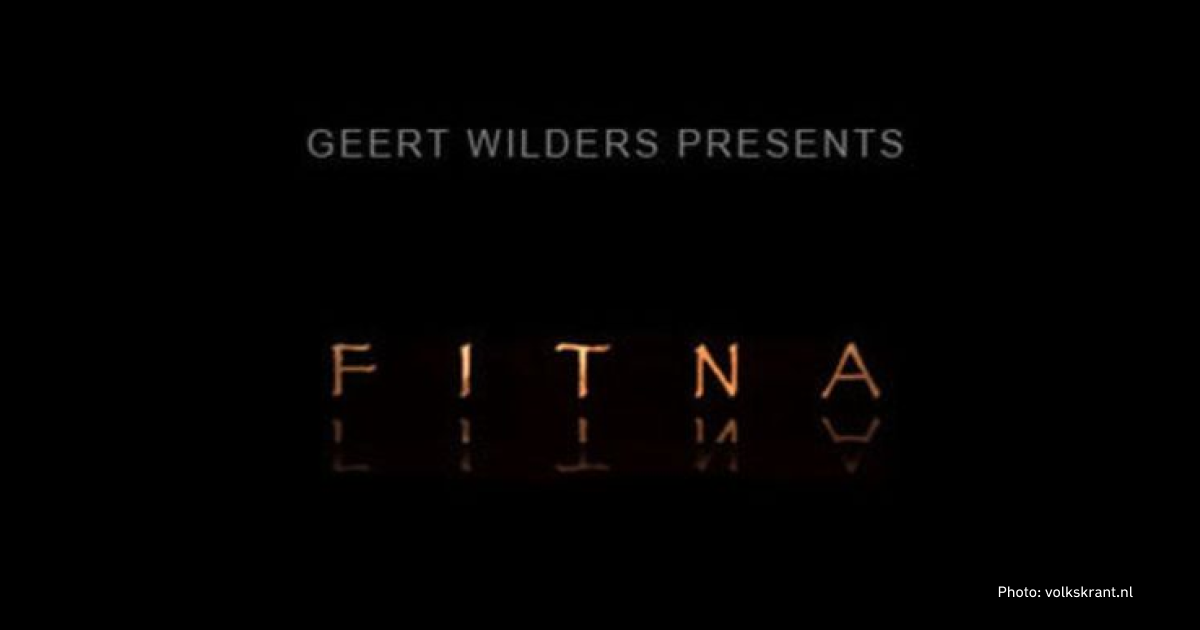
In his election manifesto, his PVV party promises, in particular:
- to keep the Dutch Armed Forces independent and not to support any merger with the EU or the German army;
- no EU army and no unification with the German army;
- not to support Türkiye's participation in NATO;
- to stop the flow of refugees into the country by deploying the Defence Forces at the border;
- to create a system of payments to widows as a sign of recognition and financial compensation for the salaries of their deceased husbands.
The party has also been labelled an anti-Muslim force. When asked about Muslim Dutch people, Wildres assured them that they had nothing to worry about.
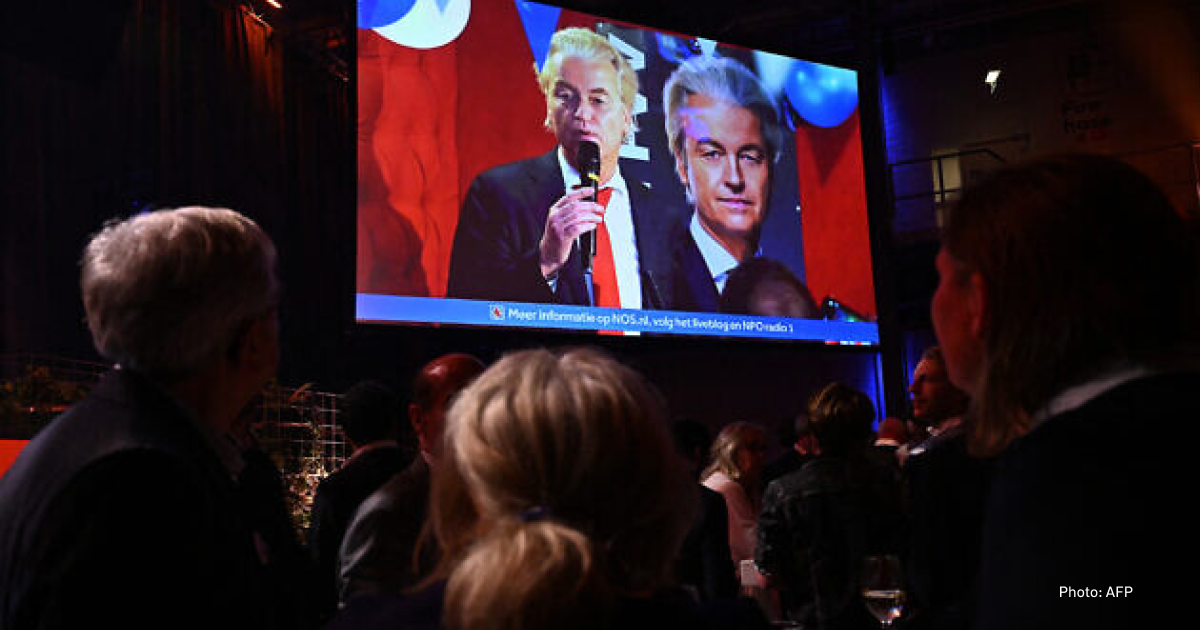
"The picture is more nuanced, and if I become prime minister, I will be for all Dutch people, regardless of their religion, sexual preference, skin colour, gender or anything else. If you are the prime minister, you have a different role than the leader of the opposition," Wilders said.
At the same time, Amnesty International Netherlands said that human rights had been "defeated".
"A racist party has won the elections in the Netherlands. A party that rejects certain groups of people and calls them inferior," Amnesty International said in a statement.
Wilders was one of the initiators of the 2016 referendum that temporarily blocked the EU-Ukraine Association Agreement.
He paid a working visit to Moscow in 2018. "Stop Russophobia. It's time for realpolitik. We need partnership, not enmity," Wilders wrote in X after the trip.
In 2022, the Dutch parliament voted to investigate whether Russia finances Dutch politicians.
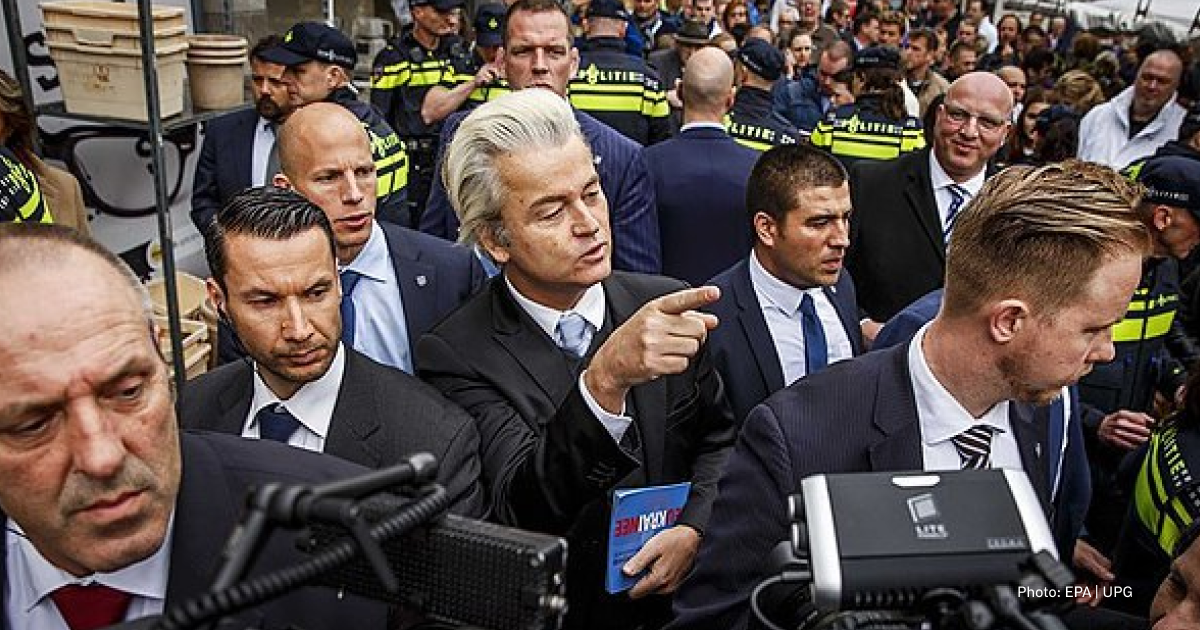
How the election results will affect Ukraine
The Party for Freedom criticises the current Prime Minister Mark Rutte's government, particularly for providing weapons to Ukraine.
We will not send our money and defence equipment, such as F16s, to Ukraine,
the Party for Freedom says in its election manifesto.
The far-right is convinced that the national defence of the Netherlands is "seriously weakened as long as the government considers foreign countries more important than its own".
Wilders opposes Ukraine's membership of NATO and the EU. Before the full-scale invasion, he did not support sanctions against Russia.
However, n February 24, 2022, he condemned Russia's full-scale war against Ukraine and said that "the West made a big mistake "by not announcing that Ukraine could not join NATO.
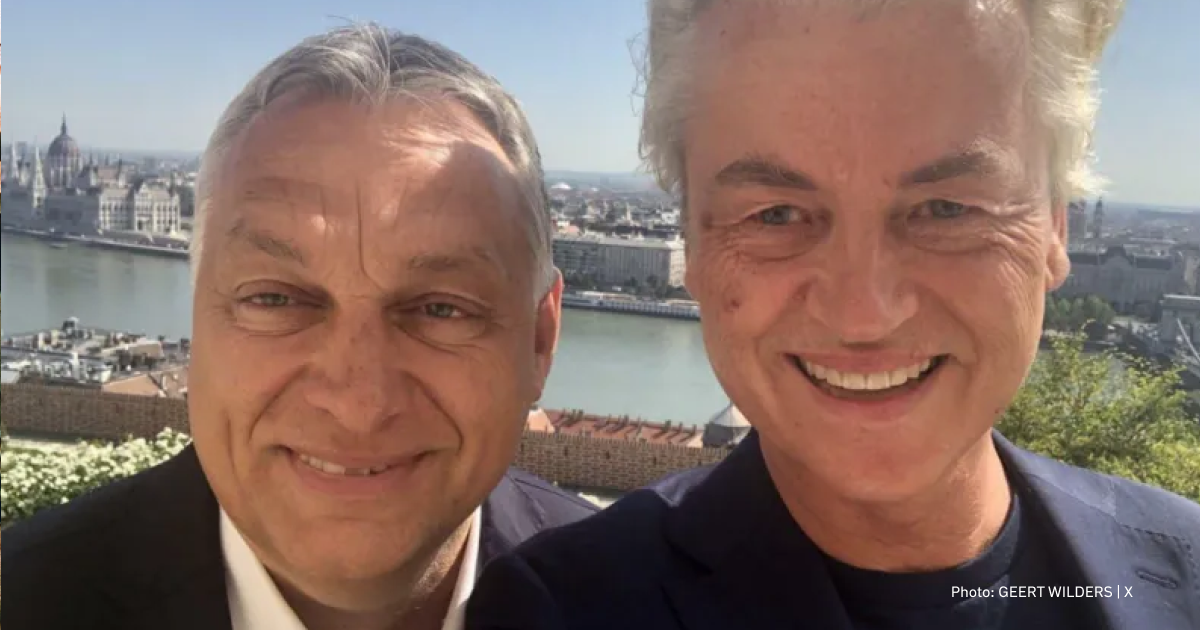
International reaction to the elections in the Netherlands
The European Commission spokesperson said that despite Wilders' Eurosceptic views, the Commission is not afraid of the Netherlands leaving the EU.
The Netherlands is a founding member of the European Union, a very strong member of our union. We continue to count on the Netherlands' strong participation in the EU, obviously,
he said in a statement.
French far-right leader Marine Le Pen, Belgian far-right leader Tom Van Grieken, Spanish far-right leader Santiago Abascal, Italian far-right leader Matteo Salvini, and Hungarian Prime Minister Viktor Orbán congratulated Wilders on his victory.
German Foreign Minister Anna Lührmann and the European Green Party expressed concern about the far-right's victory.
"The high level of support for anti-European forces in the Netherlands is bitter. All pro-Europeans must now work to ensure that this does not happen again in the European elections," Lührmann said.


